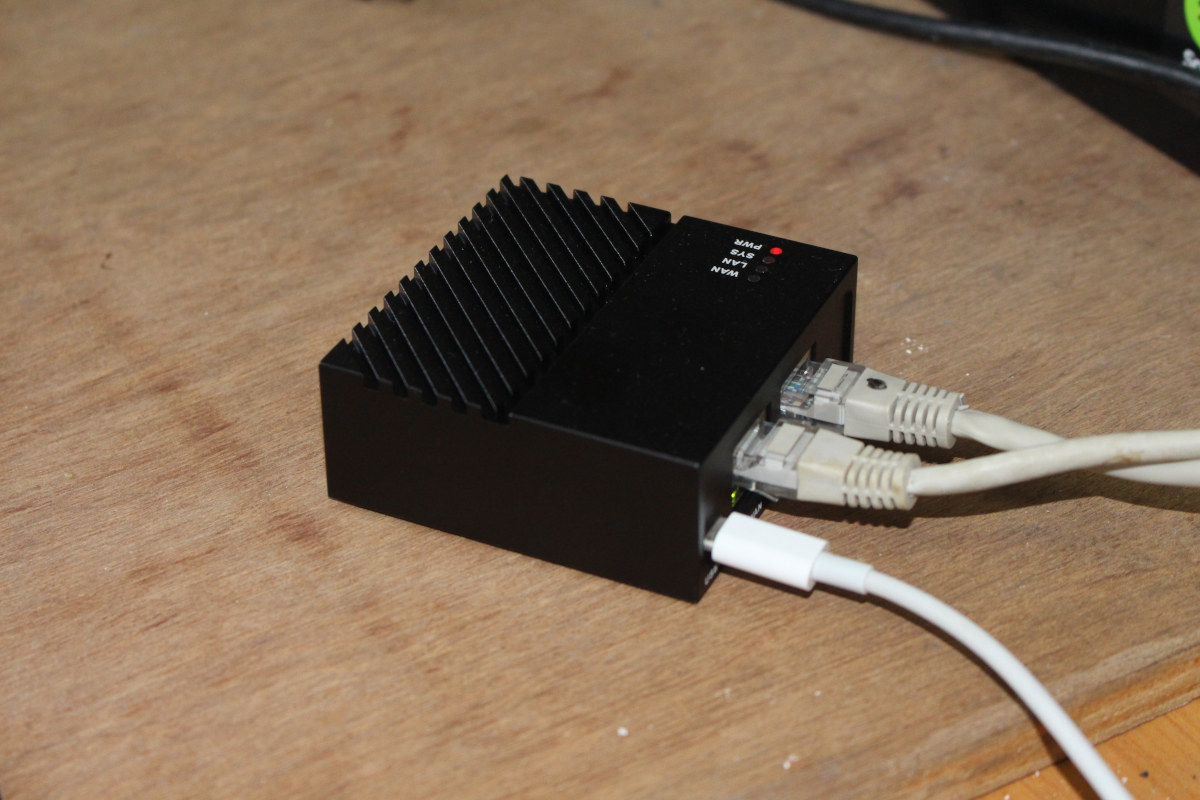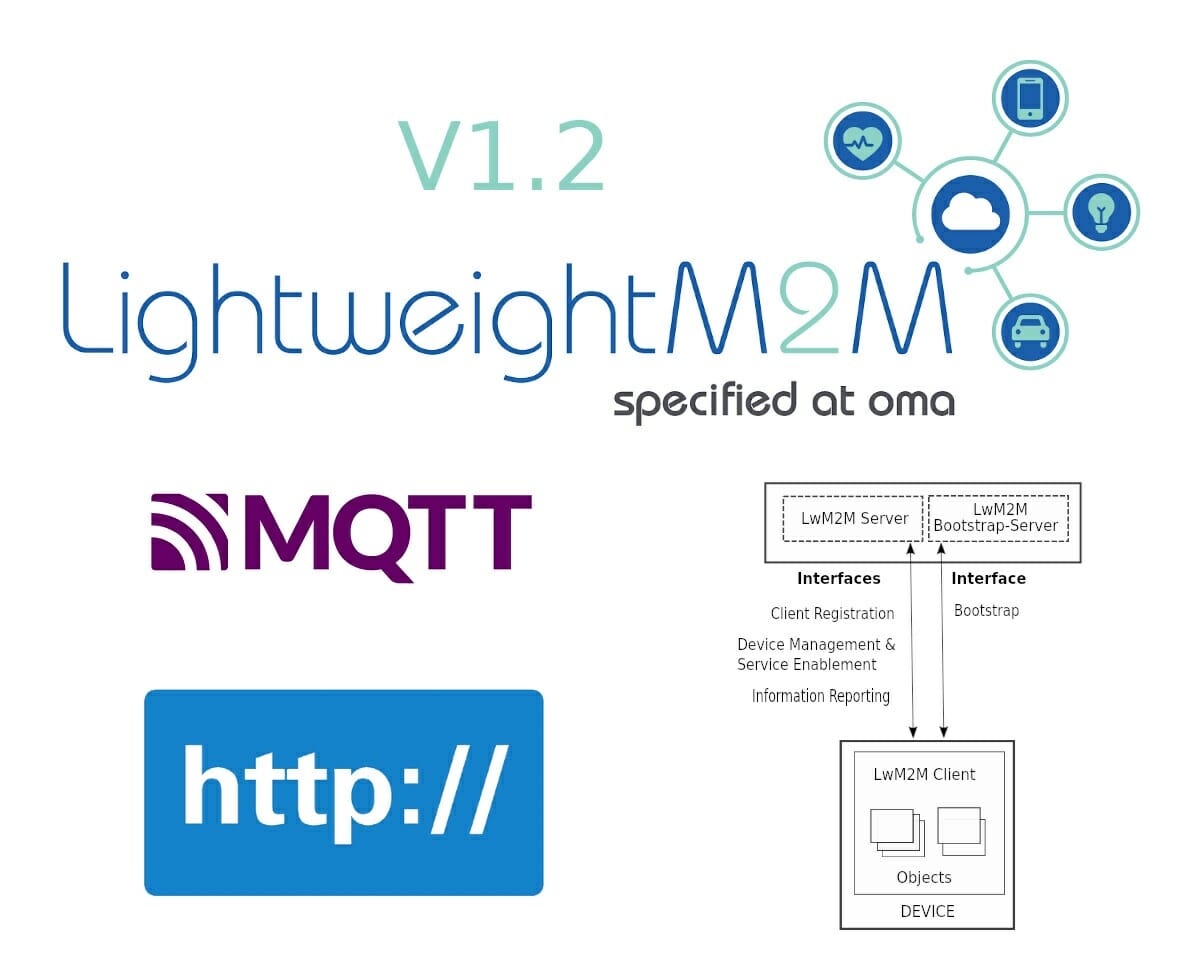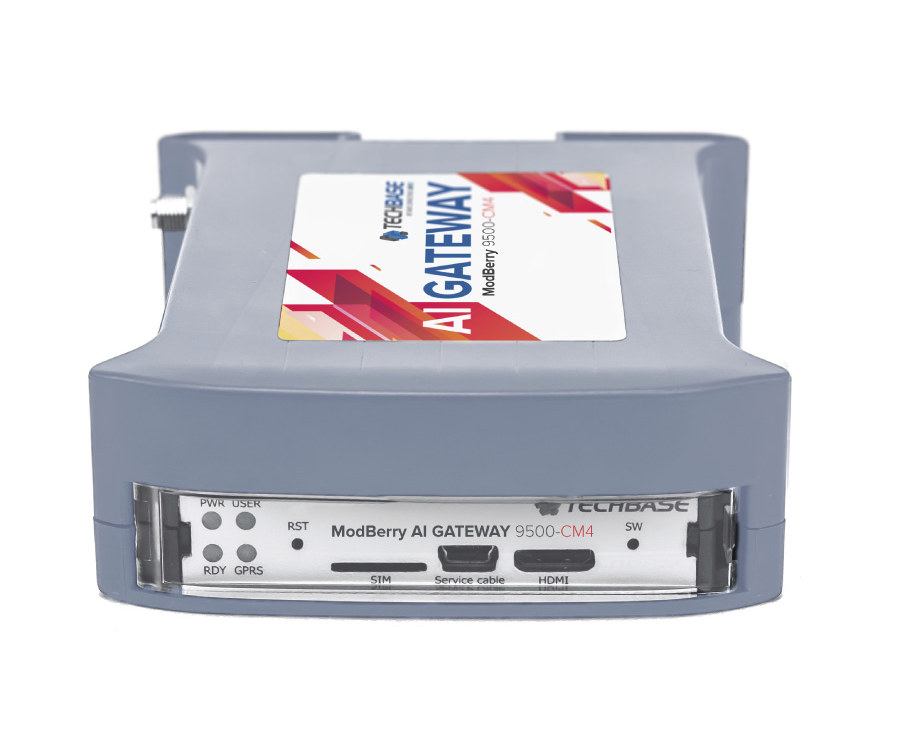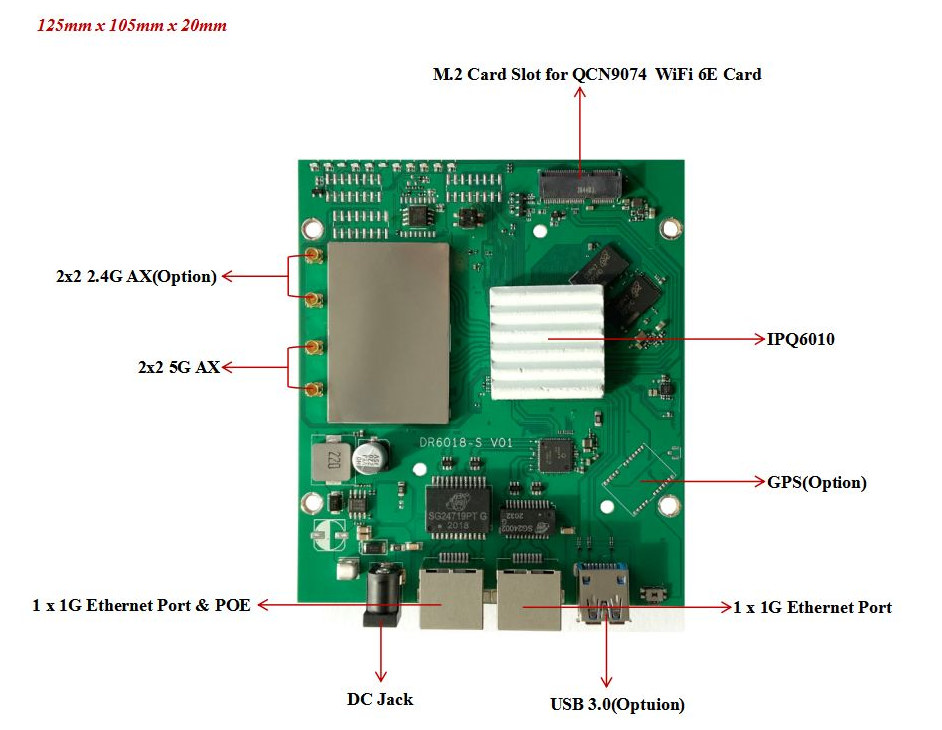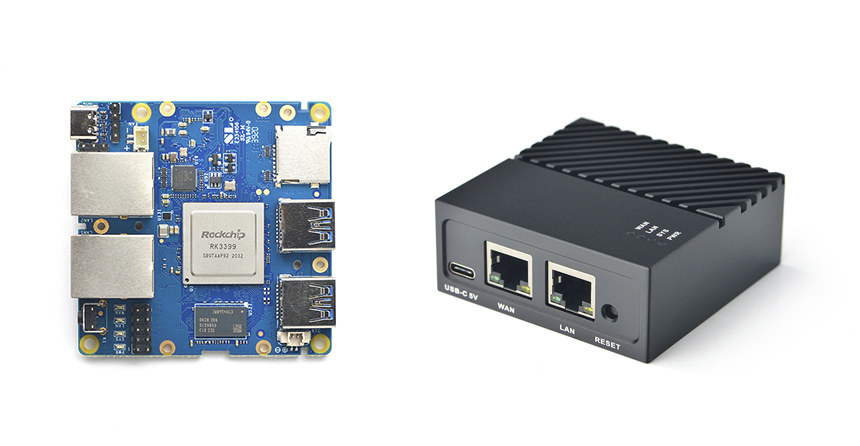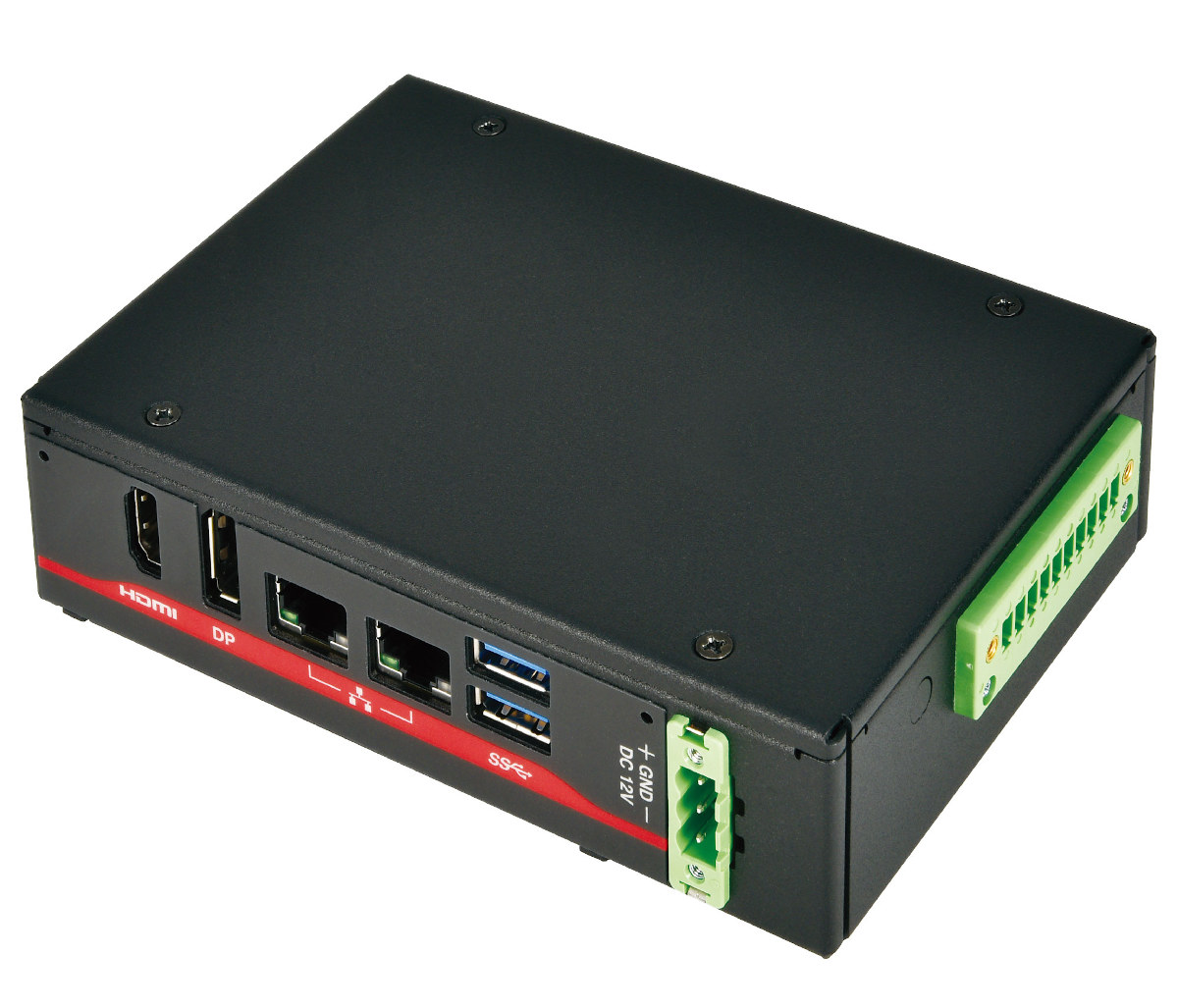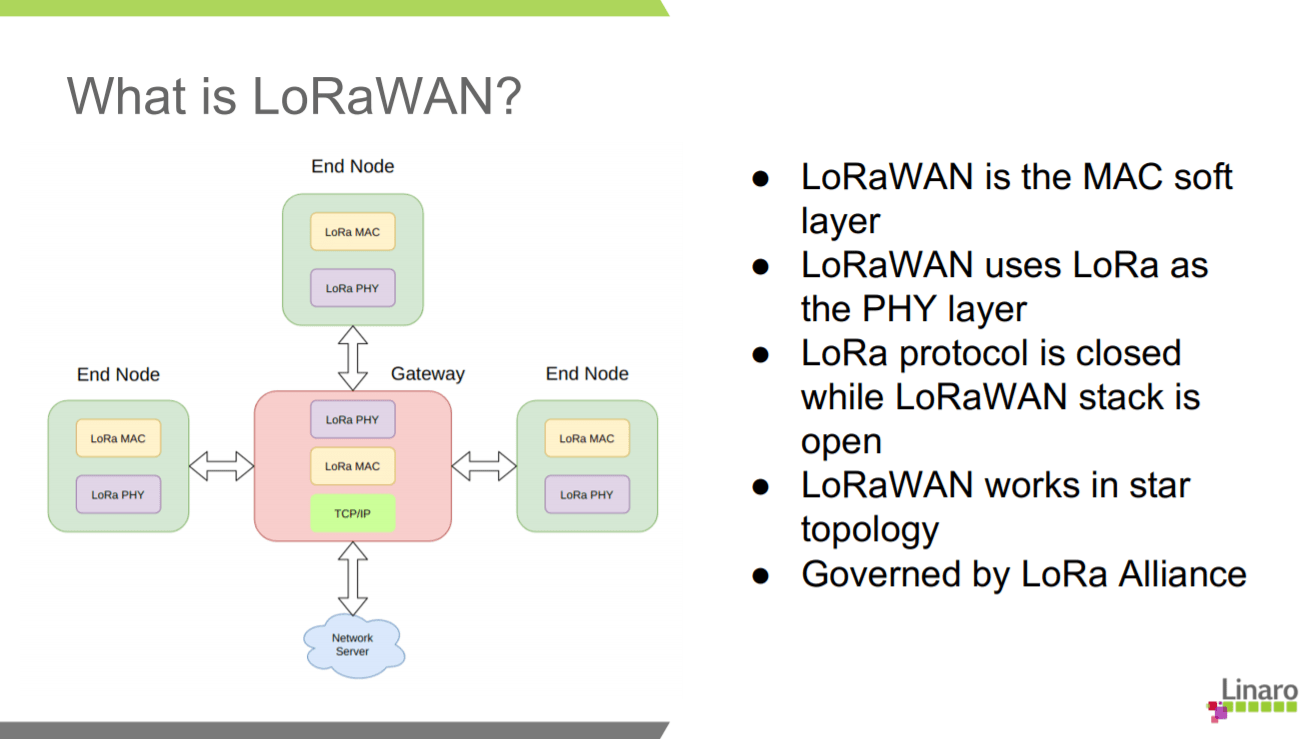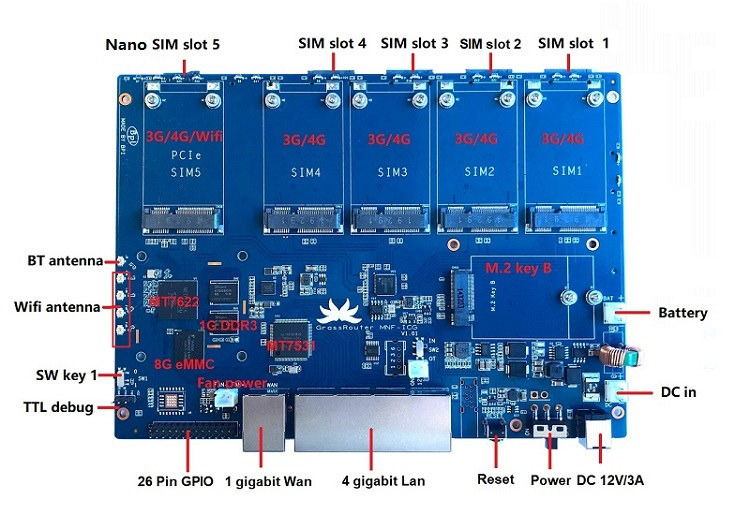Rockchip RK3399 powered NanoPi R4S router SBC launched at the beginning of the month, and FriendlyELEC kindly sent a review sample to CNX Software. I intended to test thermally performance, Ethernet, and USB like I did for NanoPi R2S and NanoPi NEO3, but Armbian is not available right now, so I could not use some of the tools I normally used right now. So instead, I tested the board/gateway with the image from FriendlyELEC. First FriendlyCore based on Ubuntu Core 20.04, but there some issues which we’ll detail in this preview, so I then switch to FriendlyWrt built upon OpenWrt 19.07 which works better, but I still encountered some problems. That’s just to say it might be better to wait a little longer until Armbian images are released, or until FriendlyELEC fixes some of the shortcomings. NanoPi R4S gateway unboxing Before testing the software, let’s see what I’ve received. NanoPi […]
LwM2M v1.2 M2M & IoT device management protocol adds support for HTTP and MQTT, LwM2M gateways
Lightweight M2M (LwM2M) is a REST-based protocol from the Open Mobile Alliance (OMA) for M2M & IoT device management that defines the application layer communication protocol between an LwM2M server and an LwM2M client running on an IoT/embedded device. While LwM2M v1.0 was published in early 2017, we first covered the new protocol a year earlier as Imagination Technologies released the source code for the LwM2M stack running on MIPS Creator Ci40 development board. Since then we’ve mostly seen the LwM2M protocol supported in cellular LTE IoT modules including Quectel BC66 and u-Blox Sara-R410M, as well as the now-defunct Samsung Artik WiFi IoT modules. LwM2M v1.0 was followed by v1.0.1 and v1.0.2 for bug fixes, and v1.1, but OMA has now announced LwM2M v1.2 protocol that adds the following new features: New transports for LwM2M: MQTT and HTTP Optimizations for the bootstrapping and registration interfaces to reduce the amount of […]
AI Gateway combines Raspberry Pi Compute Module 4 with Google Coral Edge TPU
Techbase quickly unveiled an update to their Modberry industrial controllers with Modberry 500 CM4 DIN Rail computer as soon as Raspberry Pi Compute Module 4 was launched. The company has now introduced another Raspberry Pi CM4 based product with ModBerry AI GATEWAY 9500-CM4 gateway combining the Broadcom BCM2711C0 system-on-module to Google Edge TPU to cater to applications leveraging AI acceleration. ModBerry AI GATEWAY 9500-CM4 preliminary specifications: SoM – Raspberry Pi Compute Module 4 AI accelerator – Google Coral Edge TPU module with up to 4 TOPS connected over the RPi CM4’s PCIe interface Peripherals (customizable as needed) USB, HDMI, and Ethernet. Serial RS-232/485 ports Digital and analog I/Os with or without opto-isolation Relays, 1-Wire, CAN bus, M-Bus Master and Slave PCIe modules for wireless support Cellular – 4G/LTE and 5G modem, interchangeable with Coral TPU, plus on-board eSIM LPWAN – NB-IoT, LoRa, Sigfox, Wireless M-Bus ZigBee Additional Wi-Fi/Bluetooth interface or […]
DR6018-S is a more compact, cheaper WiFi 6 SBC with optional WiFi 6E
Earlier this year we wrote about Wallys Communications DR6018-V2 WiFi 6 embedded router board based on Qualcomm IPQ6010 processor with M.2 sockets for optional 5G and WiFi 6E cards. The company has now launched a more compact, and cheaper board with DR6018-S SBC based on the same processor with 802.11ax WiFi 6 and 802.11 b/g/n/ac WiFi 5 support, plus an M.2 socket for people wanting to add WiFi 6E cards. DR6018-S board specifications: SoC – Qualcomm Atheros IPQ6010 quad-core Arm Cortex-A53 processor @ 1.8 GHz System Memory – 1GB (2x 512MB) DDR3L 16-bit interface with 32-bit memory bus design Storage – 256MB NAND Flash, 32MB NOR flash, optional SD card slot Networking Wired – 2x Gigabit Ethernet port including one with PoE support Wireless WiFi 2×2 2.4GHz MU-MIMO OFDMA 802.11b/g/n/ax WiFi 6, max 23dBm per chain 2×2 5GHz MU-MIMO OFDMA 802.11a/n/ac/ax WiFi 6, max 20dBm per chain 4x u.FL connectors […]
NanoPi R4S SBC launched with optional metal case for $45 and up
We found NanoPi R4S board in a work-in-progress Wiki last month. The tiny single board computer is designed for headless applications but comes with much better specifications compared to similar boards with a Rockchip RK3399 hexa-core processor with up to 4GB RAM, dual Gigabit Ethernet, and USB 3.0 ports. At the time we had limited information, but FriendlyELEC has now started selling the board for $45 and up, together with an optional metal case for a fanless operation that should ensure very good cooling. Here’s a reminder of NanoPi R4S specifications: SoC – Rockchip RK3399 hexa-core processor with dual-Core Cortex-A72 up to 2.0GHz, quad-core Cortex-A53 up to 1.5GHz, Mali-T864 GPU with OpenGL ES1.1/2.0/3.0/3.1, OpenCL, DX11, and AFBC support, 4K VP9 and 4K 10-bit H265/H264 60fps video decoder System Memory – 1GB DDR3 or 4GB LPDDR4 Storage – MicroSD card slot Networking – 2x GbE, including one native Gigabit Ethernet, and […]
Fanless Linux embedded system makes a compact IoT gateway
ICP Germany has recently introduced the MiTAC ME1-8MD series family of compact, fanless Linux embedded systems powered by NXP i.MX 8M processor and designed to be used as IoT gateways, data acquisition and processing systems, and mini servers. Three models have been launched with a choice of dual or quad-core processors, up to 4GB LPDDR4 RAM, and 32GB eMMC flash storage. The embedded computers also come with up to two Ethernet ports, support up to two displays, and include an internal Raspberry Pi compatible 40 pin GPIO header. MiTAC ME1-8MD specifications and key features: SoC – NXP i.MX 8M Dual or Quad with two or four Cortex-A53 @ 1.3GHz, Cortex-M4 MCU, Vivante GC7000 Lite GPU, and 4K video processing unit System Memory – 1 to 4GB LPDDR4 800 Mhz RAM Storage – 8, 16, or 32GB eMMC flash, 1x MicroSD card slot up to 256GB Video Output HDMI 2.0 Optional […]
LoRa & LoRaWAN support in Zephyr OS
The story of LoRa began in 2009 when Cycleo, a French company, invented LoRa. LoRa (Long Range) support for Zephyr OS goes back to December 2019. Since then, there has been a huge interest among the community to extend their support for it. More recently, LoRaWAN (low-power wide-area network) support was added to Zephyr OS. This will provide true networking support to Zephyr OS over LoRa. It operates in licensed free Sub Gigahertz frequencies (865 MHz-India, 868 MHz-Europe, etc…). It makes the perfect choice for low data rates and long-range applications. What is LoRaWAN? LoRaWAN is a MAC layer that sits on top of the LoRa. According to the OSI model, LoRaWAN is the MAC (media access control) layer while LoRa is the PHY (physical) layer. LoRa protocol is closed, meaning it is proprietary to Semtech, while LoRaWAN specifications are open to the public. The reference implementation is available at […]
Cellular gateway board takes up to five 4G mini PCIe cards, one 5G M.2 module, seven SIM cards
One Banana Pi customer asked them to customize Banana Pi BPI-R64 Linux router board based on MediaTek MT7622 WiFi processor as part of their “BPI 4.0 server” OEM/ODM customization service. Specifically, they were asked to design a cellular gateway board with the same five Gigabit Ethernet ports as on the original board, but adding five mini PCIe sockets and SIM card slots for 3G/4G cards, and one M.2 socket plus two SIM cards for a 5G module. Here’s the result! Banana Pi “GrassRouter” cellular gateway board specifications: SoC – MediaTek MT7622E dual-core ARM Cortex-A53 processor @ 1.35GHz System Memory – 1 or 2GB RAM Storage – 8GB eMMC flash, MicroSD card slot Connectivity Cellular 1x 5G via M.2 Key-B module (USB 3.0 or PCIe bus), 2x SIM card slots. Up to 5x 3G/4G LTE via mPCIe expansion socket, 5x SIM card slots Ethernet – 5x Gigabit Ethernet ports (4x LAN […]


